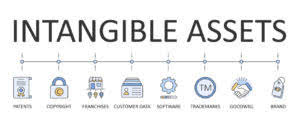Managerial Accounting
- 2022-04-25
- 23:17

Some common examples are the master chart, chart of sales and earnings, investment chart, etc. With the development of electronic devices for recording and classifying data, reporting to management has considerably improved. The management accountant provides all these data and information relevant to the enterprise for the purpose.
You may also want to set or estimate the budget for future business operations. With the available holistic financial information, the management certainly finds it easy to coordinate between the different teams and levels within the organization. Budgets are extensively used as a quantitative expression of the company’s plan of operation.
Managing Growth for Your Business
Each employer may have their requirements, so it’s important to research the desired qualifications before pursuing your degree and applying to entry-level positions. A financial analyst’s main duty is to examine data to determine outcomes and opportunities for business investments and decisions. Financial analysts will track and analyze financial processes for companies, support other departments, and use financial data to create budgets and forecasts.

Cost accounting is nothing but a subgroup of management accounting which primarily focuses on identifying and capturing the total production costs by evaluating the variable and fixed costs of each production step. This helps organisations in faster decision-making and eliminate spending unnecessary time and effort in other processes. Since most managerial accounting activities are conducted for internal uses and applications, managerial accounting is not prepared using a comprehensive, prescribed set of conventions similar to those required by financial accounting.
Planning and Policy Formulation
In fact, management accounting use performance reports like financial reports to analyse the variances between actual results from budgets. Financial accounting information is mostly historical in nature, although companies and other entities also incorporate estimates into their accounting processes. For example, you will learn how to use estimates to determine bad debt expenses or depreciation expenses for assets that will be used over a multiyear lifetime. That is, accountants prepare financial reports that summarize what has already occurred in an organization.

This method provides transparency to key stakeholders so that they can see where the money goes and why. Financial professionals typically use reports like balance sheets and debt-to-equity ratios to help companies determine borrowed capital amounts. Having a certification can offer many benefits in the managerial accounting field.
Terms Similar to Management Accounting
It might even be hard to think of a place of work that wouldn’t benefit from a management accountant’s expertise and skills. The distinction between traditional and innovative accounting practices is illustrated with the visual timeline (see sidebar) of managerial costing approaches presented at the Institute of Management Accountants 2011 Annual Conference. Management can use this type of accounting to set objectives, format plans to meet them, and compare the performance of various departments. So the information about management accounting depends on the managers’ own rules and regulations.
It helps the management to perform all its functions, including planning, organizing, staffing, direction, and control. In other words, the field of accounting that provides economic and financial information for managers and other management accounting internal users is called management accounting. Common computerized accounting systems include QuickBooks, which is designed for small organizations, and SAP, which is designed for large and/or multinational organizations.
